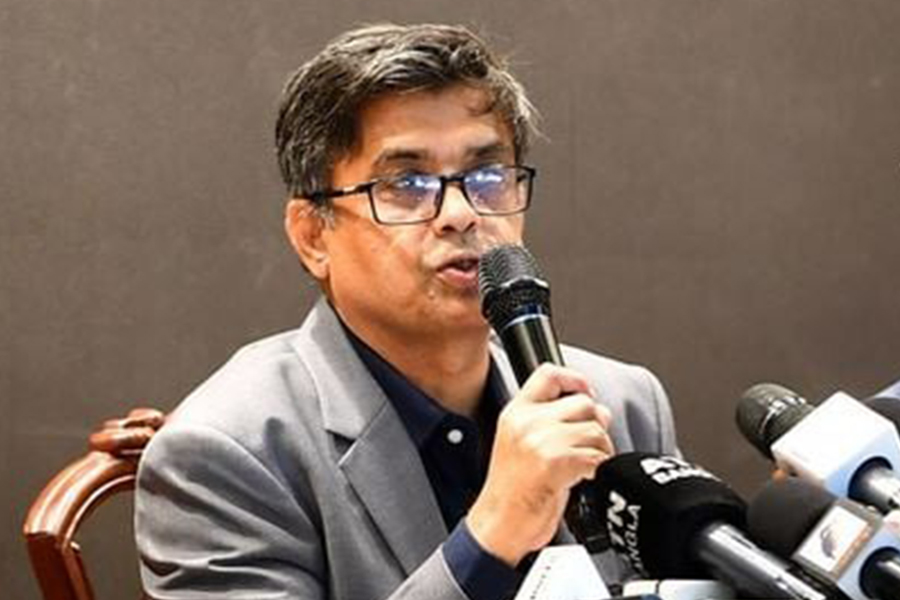Indo-BD FoC Monday
Interim govt wants good ties with India: CA's press secretary
IMF adviser meets CA

Published :
Updated :

The interim government aims to establish good relations with India on the basis of fairness, equality, and dignity, said Shafiqul Alam, press secretary to the chief adviser, on Sunday.
“We have cultural, linguistic and historical linkage with India,” he said in response to a question about the foreign office consultation meeting between India and Bangladesh, scheduled for Monday.
Indian Foreign Secretary Vikram Misri, who will lead the Indian delegation, is expected to meet the Chief Adviser, the briefing was informed.
When asked about the timing of Bangladesh's request for the extradition of Hasina, Shafiqul Alam said that it would follow the process outlined in the extradition treaty between the two countries.
He added that issues of mutual interest would be discussed during the foreign office consultation meeting between India and Bangladesh.
Shafiqul also suggested that Indian journalists visit Bangladesh to get an accurate understanding of the situation with minorities here, rather than relying on propaganda.
Responding to a question about the rising prices of soybean oil, he reassured that the prices would stabilise in the coming days and that the government was investigating the sudden price hike despite sufficient supply.
Deputy Press Secretary Apurba Jahangir clarified that comments made by education adviser Dr Wahiduddin Mahmud about the timing of elections were his personal views. Dr Mahmud had recently stated that he hoped to see an elected political government next year. Only the Chief Adviser has the authority to announce when elections will be held, he added.
Meanwhile, Lord Mark Malloch-Brown, an adviser to the IMF and World Bank and a former head of UNDP, met with Bangladesh Chief Adviser Professor Muhammad Yunus at the State Guest House Jamuna in Dhaka on Sunday.
The British peer thanked Professor Yunus for assuming leadership of the Interim Government at such a crucial time in Bangladesh's history, especially during a period of heightened expectations.
Lord Malloch-Brown also expressed his willingness to extend his support for the cause of the Bangladeshi people.
The hour-long discussions covered a wide range of issues, including the mass uprising of July-August, development matters, the Interim Government's reform initiatives, the misinformation campaign targeting the student-led movement, healthcare, social business, and microcredit.
Professor Yunus thanked Lord Malloch-Brown for his support of Bangladesh. He noted that managing public expectations was one of the government’s key challenges.
The Chief Adviser emphasised that reform was the core issue during the July-August student-led uprising, and his government is committed to implementing major reforms before holding free and fair elections.
He added that the Interim Government would act as a facilitator for the reform process and had already established 15 reform commissions to address key institutions left in disarray by the previous government under Sheikh Hasina.
Dr Martha Chen, a development worker; Asif Saleh, Executive Director of BRAC; and Lamiya Morshed, Senior Secretary of the Bangladesh Government, were also present at the meeting.


 For all latest news, follow The Financial Express Google News channel.
For all latest news, follow The Financial Express Google News channel.